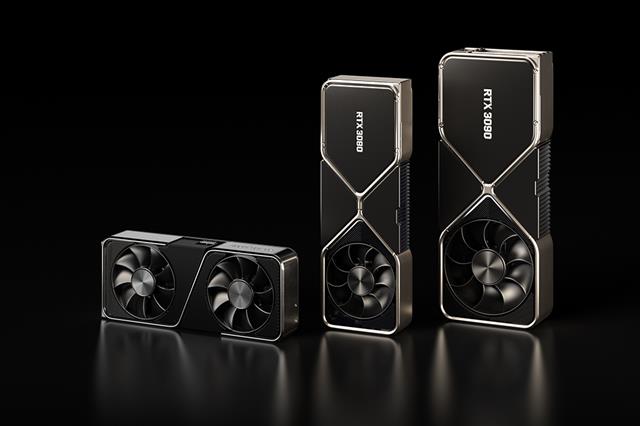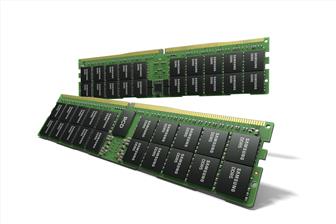
Nvidia's GeForce RTX 30 series GPUs are powered by the company's Ampere architecture. The GeForce RTX 3090, 3080 and 3070 GPUs offer up to 2x the performance and 1.9x the power efficiency over the previous Turing-based generation. The GPUs take advantage of the second-generation Nvidia RTX PC gaming platform to provide real-time ray tracing and AI gaming.
The RTX 30 series was unveiled during a virtual launch event by Nvidia founder and CEO Jensen Huang, who also announced that Fortnite is turning on RTX real-time ray tracing, adding four ray-traced features for a more immersive gaming experience, including reflections, shadows, global illumination and ambient occlusion.

Samsung HKMG DDR5
Samsung Electronics has expanded its DDR5 DRAM memory portfolio with a 512GB DDR5 module...
Photo: Company

Nvidia GeForce RTX 30 series GPUs
Nvidia's GeForce RTX 30 series GPUs are powered by the company's Ampere architecture. The...
Photo: Company

Apple HomePod mini
Apple's HomePod mini is the newest addition to the HomePod family. At just 3.3 inches tall,...
Photo: Company

Apple 13-inch MacBook Pro with Magic Keyboard
Apple has updated the 13-inch MacBook Pro with the new Magic Keyboard for an improved typing...
Photo: Company

Apple iPad Pros
Apple's new iPad Pros comes with the latest A12Z Bionic chip, an ultra-wide camera, studio-quality...
Photo: Company
- Luc Van den hove: Aim high, be ambitious, but stay humble (Dec 19) - EE Times
- Intel shortlists suitors for programmable chip arm Altera (Dec 20) - Bloomberg
- South Korean president declares martial law (Dec 3) - The Financial Times
- China dials up US trade tension with tit-for-tat metals ban (Dec 3) - Bloomberg
- Silicon photonics set for takeoff (Oct 30) - EE Times
- TikTok founder becomes China's richest man (Nov 1) - BBC News
- Nvidia to take Intel's spot on Dow Jones Industrial Average (Nov 1) - Reuters
- Huawei's latest AI processors were made by TSMC (Oct 22) - Bloomberg
![]() South Korea's FuriosaAI takes on global AI chip race with 'RNGD'
South Korea's FuriosaAI takes on global AI chip race with 'RNGD'FuriosaAI, a Seoul-based AI chip startup founded in 2017, is making waves in the AI hardware market...
![]() TASTI 2024
TASTI 2024From groundbreaking satellite advancements to international collaboration on space exploration, DIGITIMES Asia delivers comprehensive coverage of TASTI...

CSP in-house development of ASIC accelerators
Google TPUs will see a share of over 70% in the in-house developed cloud ASIC accelerator market in 2024; an all-optical network...

AI chip market outlook 2023-2028: Insights from demand and supply perspectives
The growing demand for AI computational power is accelerating advancements in hardware and chip technology, necessitating innovation...

Automotive CIS tech development, 2024
The popularization of autonomous driving is boosting demand for automotive CIS with LFM and HDR being mainstream development...






